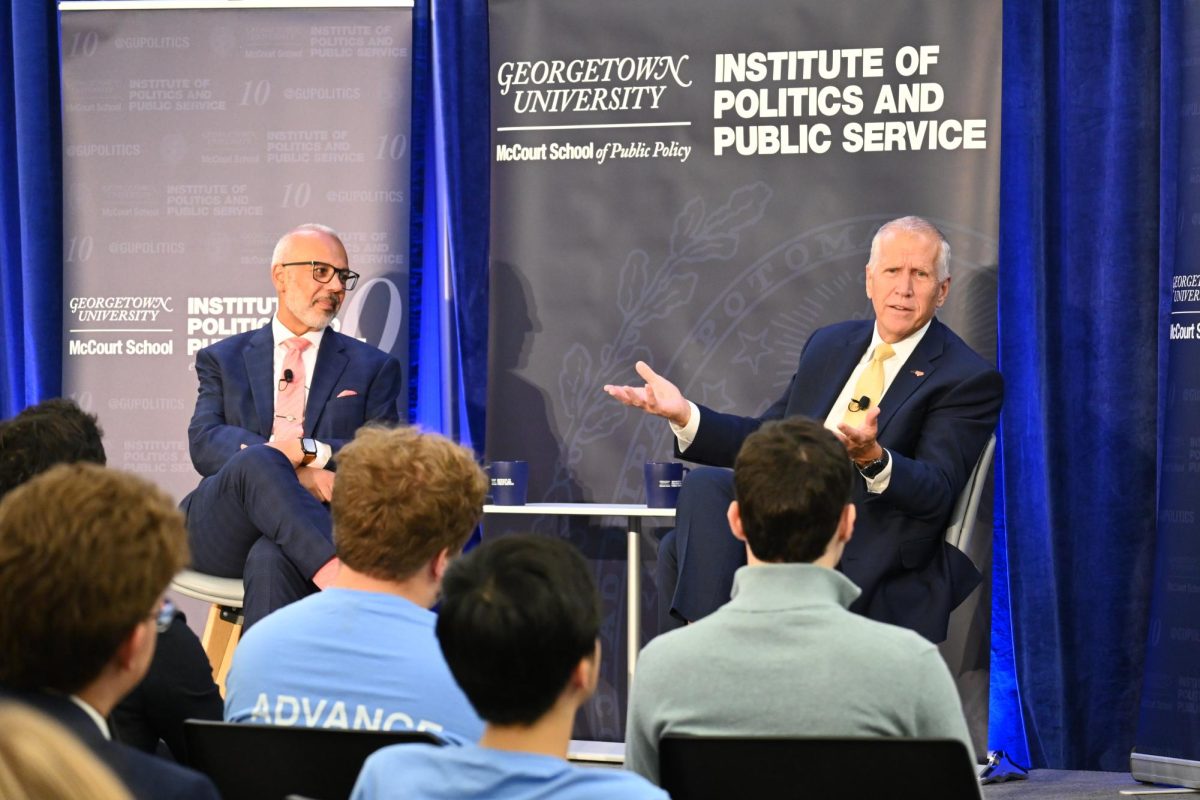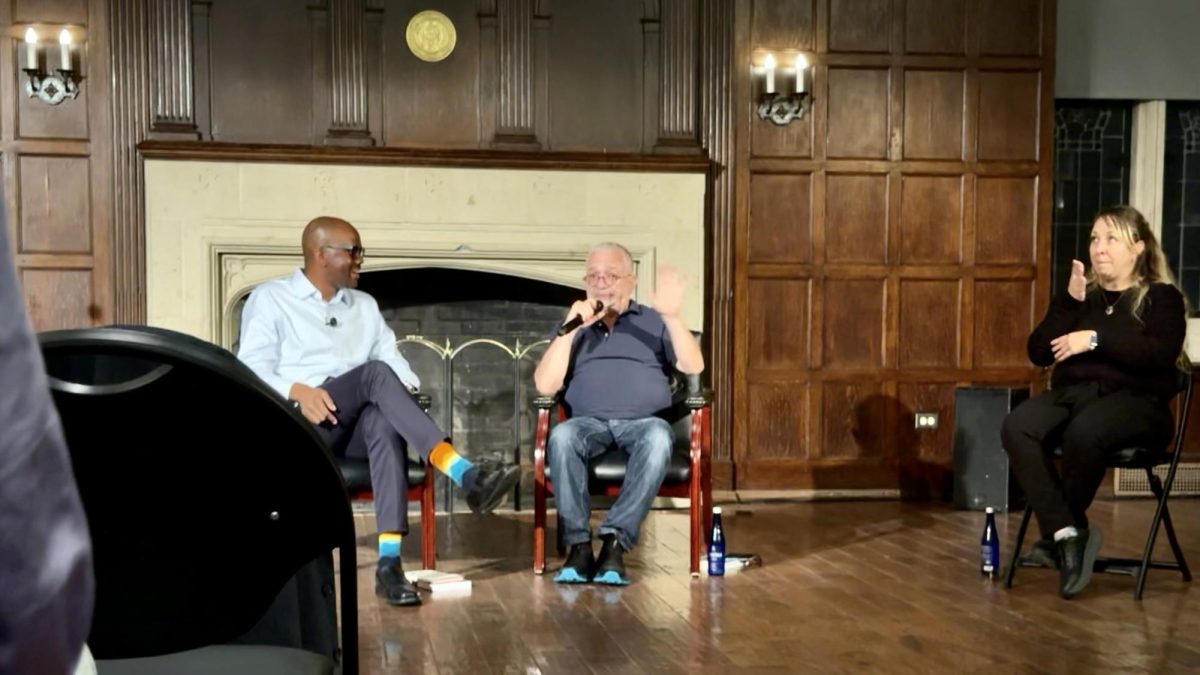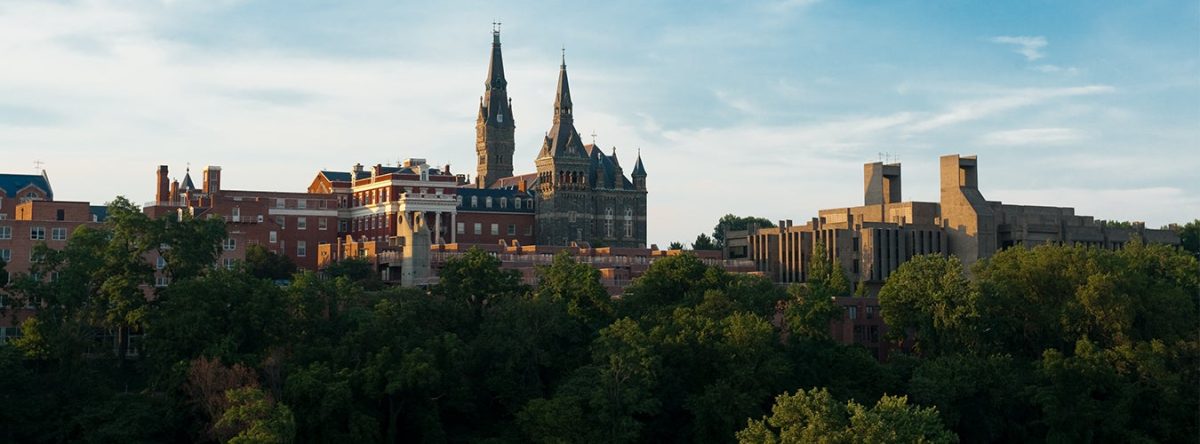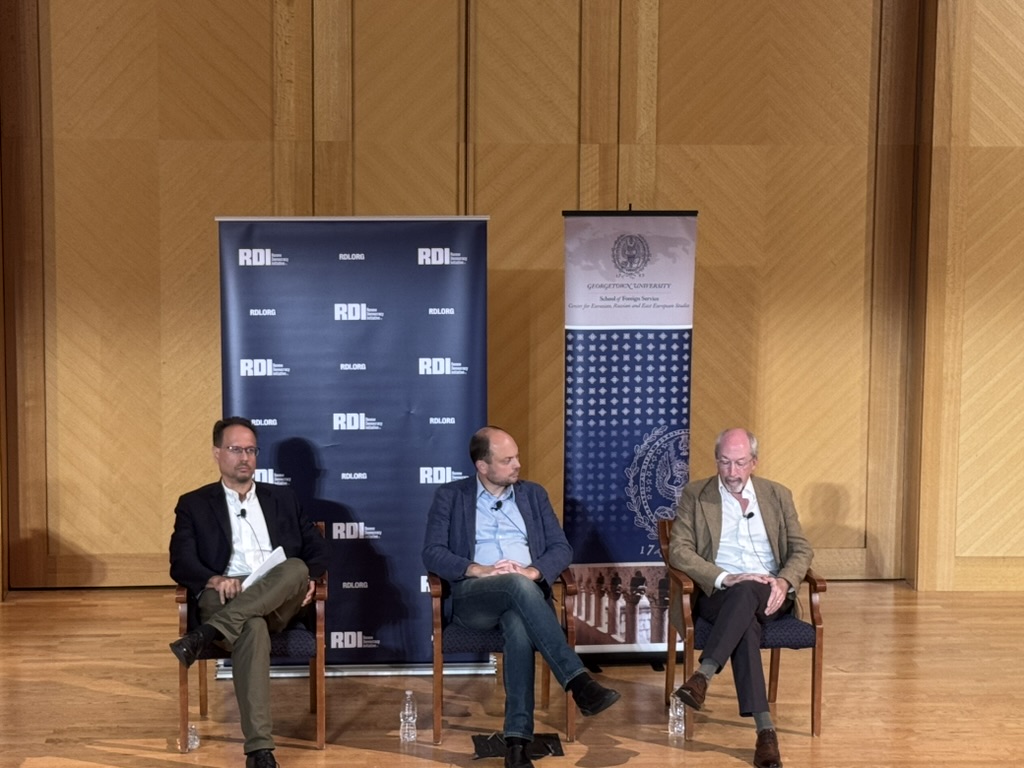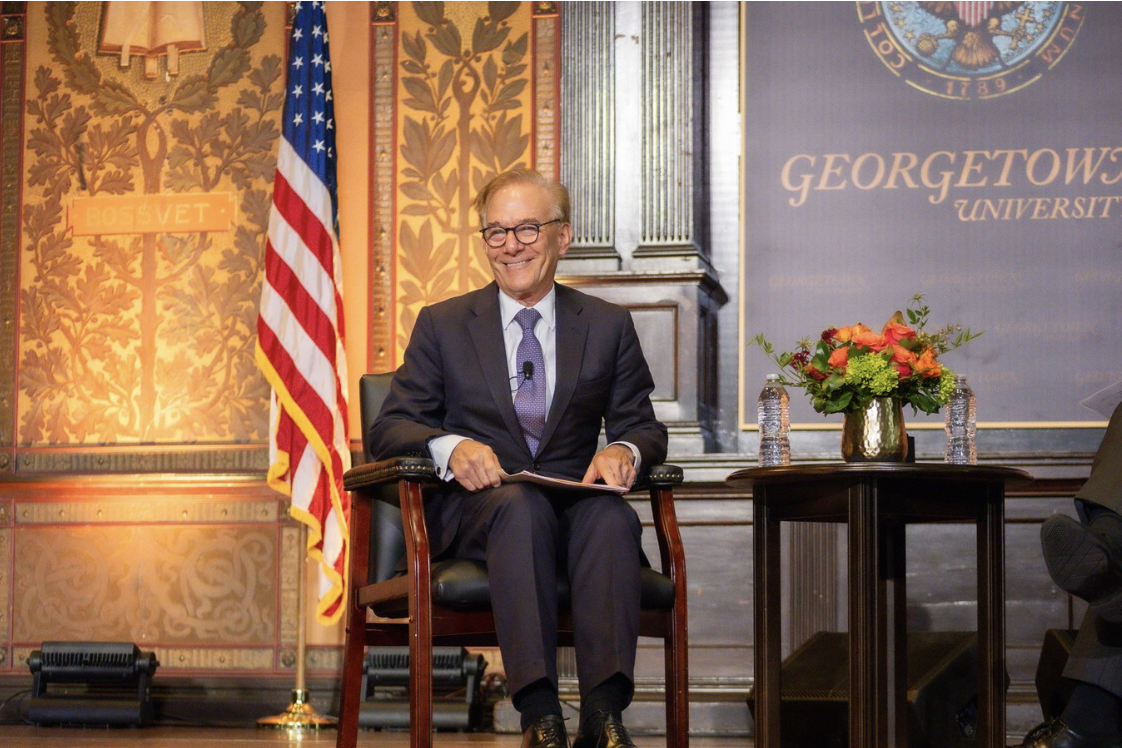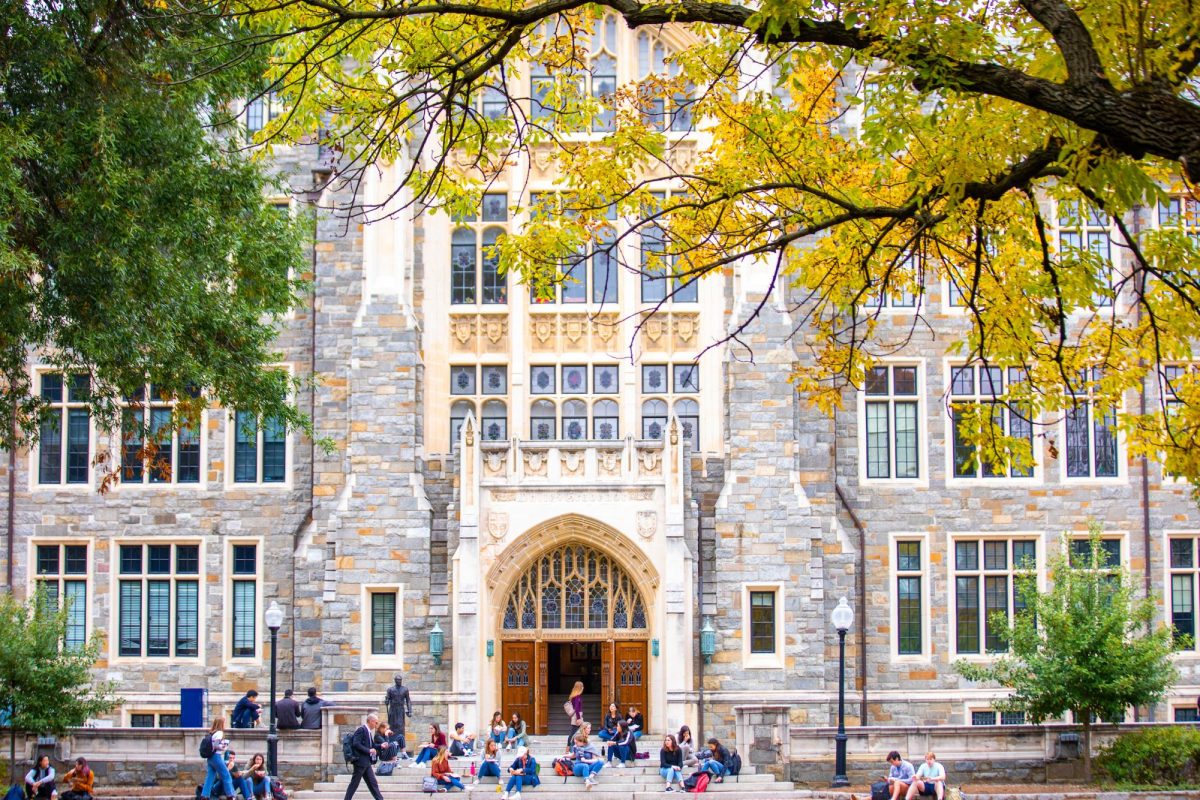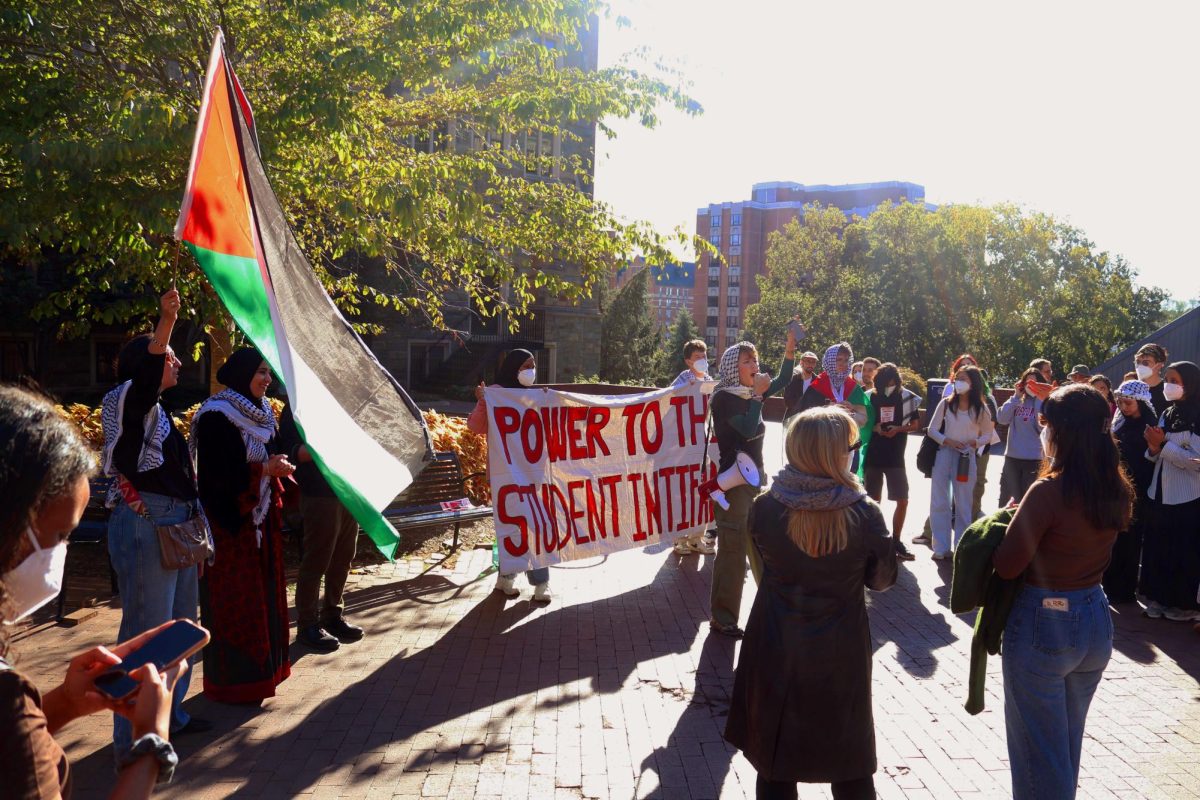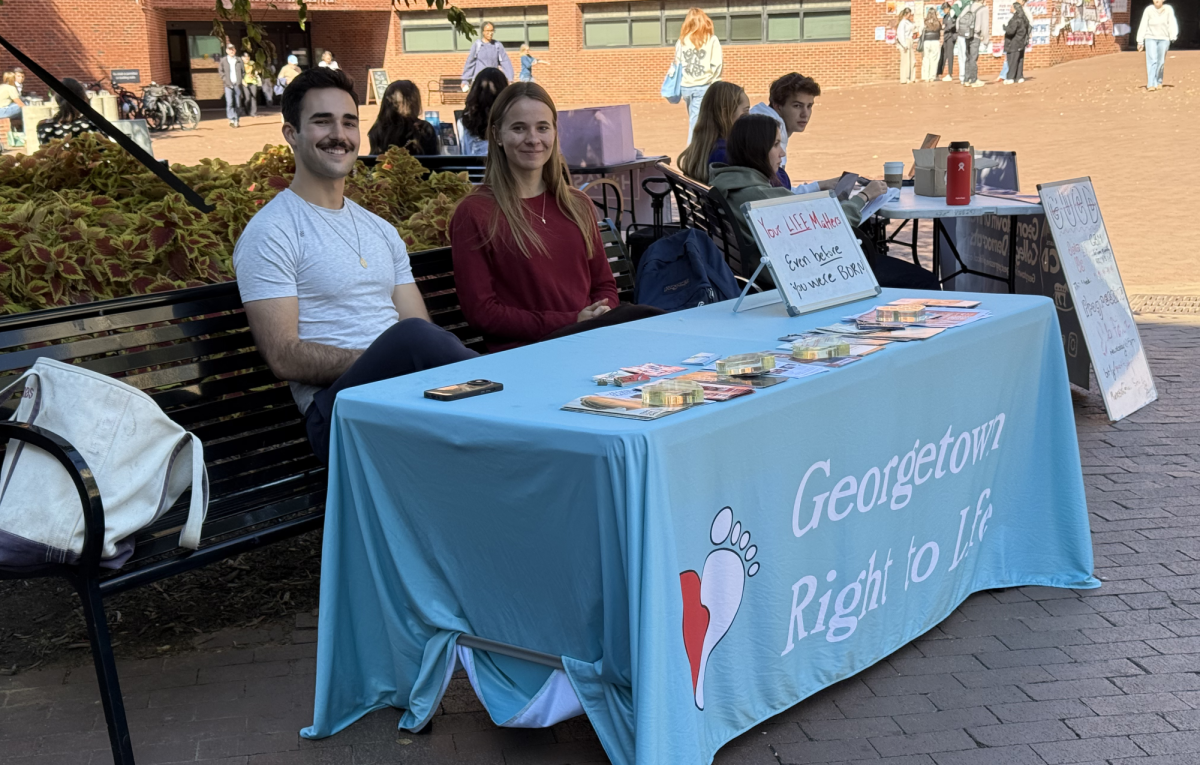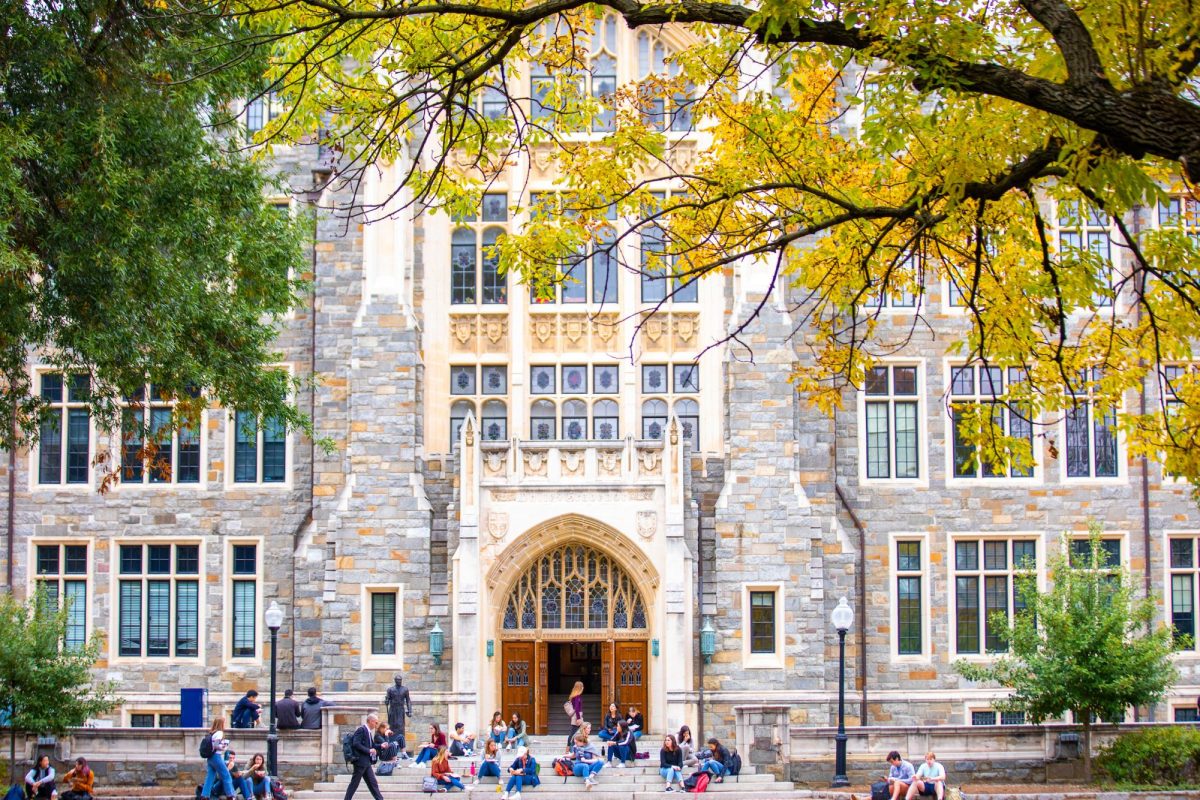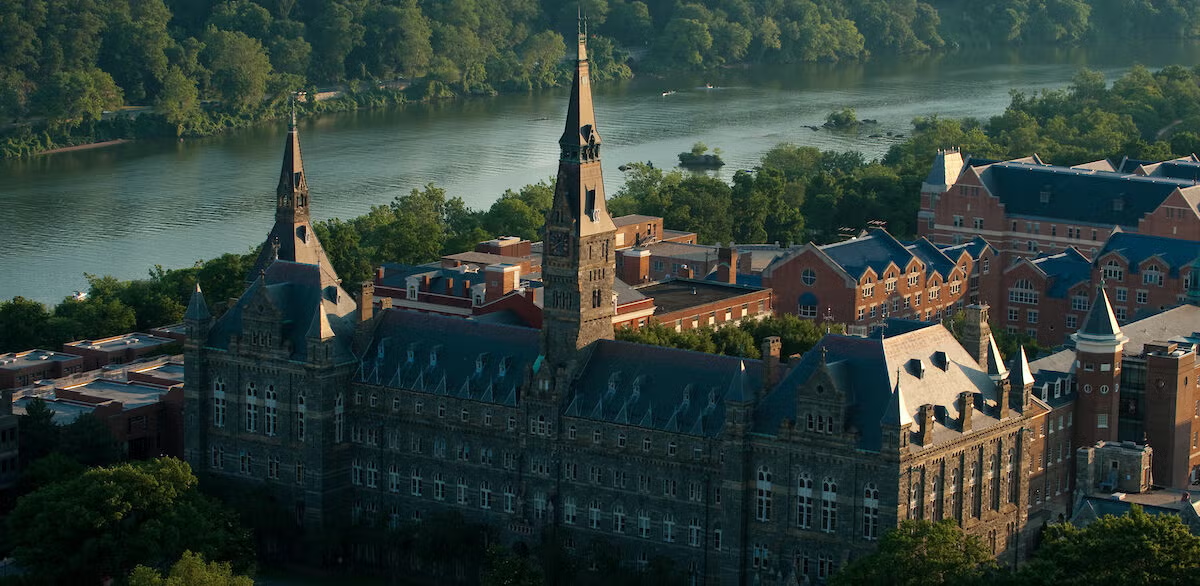Georgetown University celebrated 60 years of “Nostra Aetate,” the Catholic doctrine promoting Jewish-Catholic relations and interreligious understanding, with a lecture series sponsored by academic groups Sept. 15 and 16.
“Nostra Aetate,” meaning “in our time” in Latin, is a 1965 doctrine from the Second Vatican Council denouncing antisemitism and encouraging the development of Jewish-Catholic relations and broader interreligious dialogue. The Georgetown event was a collaboration between the university’s Office of the President, the Berkeley Center for Religion, Peace and World Affairs and the American Jewish Committee, a national Jewish advocacy group.
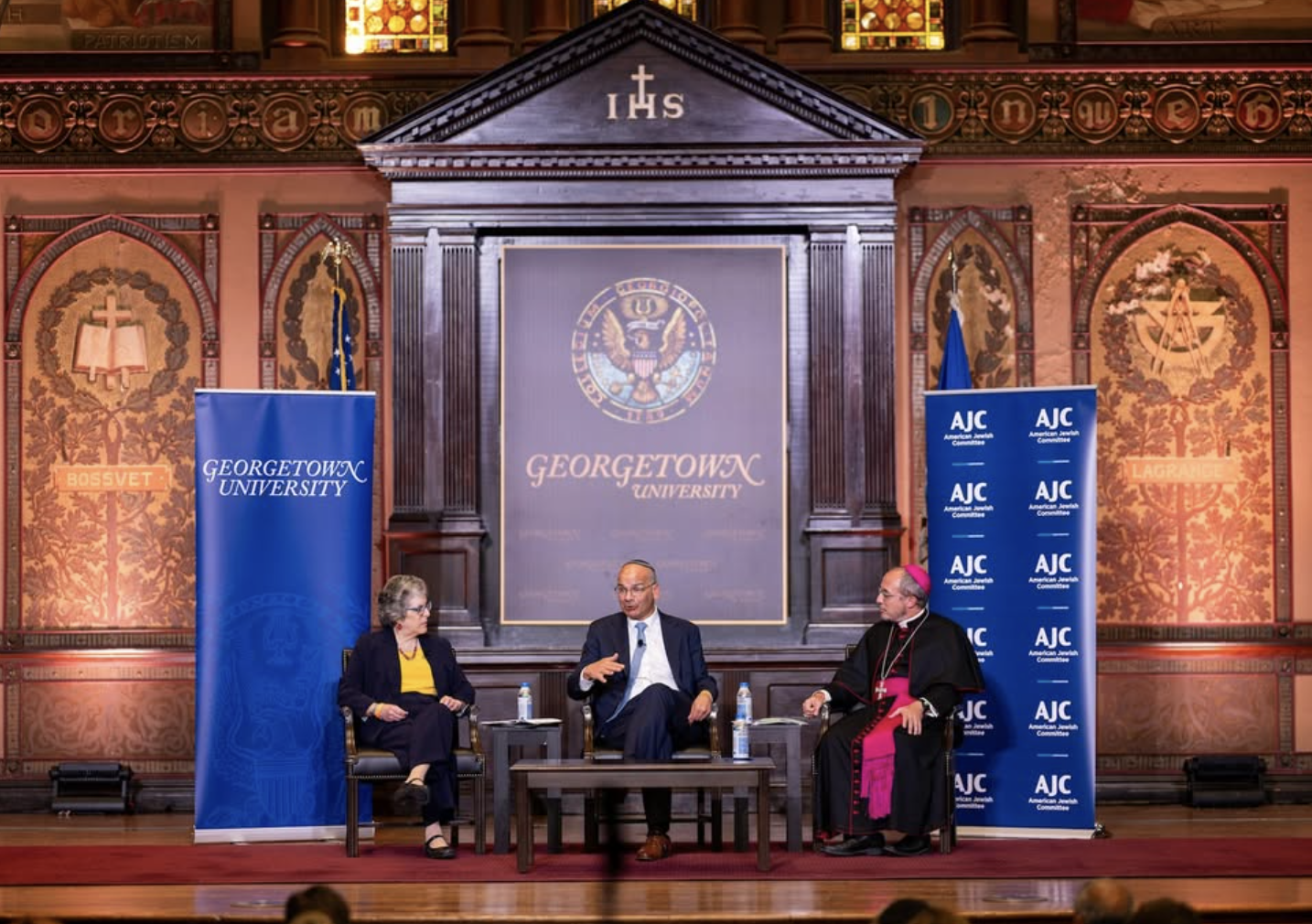
Interim University President Robert M. Groves said this interreligious understanding is central to Georgetown’s mission, tracing its roots to the Jesuits who founded the university.
“The Jesuits boldly formed this school open to all religions,” Groves said at the keynote event. “It was an attribute that, at that time, was just allowed in the state of Maryland, but then made permanent in 1791 with the First Amendment to the Constitution. Our mission statement here at this university affirms the founding principle that serious and sustained discourse among people of different faiths, cultures and beliefs promotes intellectual, ethical and spiritual understanding.”
Rabbi Noam Marans, the American Jewish Committee’s director of interreligious affairs, said this doctrine has defined Jewish relations with the Catholic Church for the past 60 years.
“Catholics could and should understand Judaism as intrinsic to Catholicism and see Jews as dearly beloved brothers, even elder brothers and Marian sisters,” Marans said at the event. “A vast infrastructure of Catholic institutions, documents, teachings and guides was created to serve this new Catholic reality, and we are the beneficiaries of six decades of that investment.”
Marans said this new approach to Jewish-Catholic relations also denounced previous Catholic teachings hostile to Jewish faith, which was especially crucial in a post-Holocaust world.
“For Jews, ‘Nostra Aetate’ meant that the Catholic church rejected two millennia of anti-Jewish Catholic teaching that had contributed to hate and violence directly at Jews,” Marans said. “That was and is a big deal, a game changer and no small matter in a post-Holocaust Christian self-reflection.”
Several events after the conference’s keynote address focused on the initial reception of “Nostra Aetate” and its historical significance as well as current Catholic-Jewish dialogue. The conference also held discussions regarding the legacy of “Nostra Aetate” and promise for the future in regard to Christian relations with both Muslim and Dharmic faiths.
Archbishop Flavio Pace, vice president of the Holy See’s Pontifical Commission for Religious Relations with Jews, said the Catholic Church’s declaration came at a time where a “Christian conscience” was necessary to reject the antisemitism that led to the Holocaust.
“The Church was emerging from one of the most devastating manifestations of the mystery of evil,” Pace said at the event. “It demanded from the Christian conscience a clear response, including the key rejection of any expression or interpretation that might have contributed historically to antisemitism.”
In light of the ongoing Israel-Hamas war, Marans said it is crucial both Jewish and Catholic people continue to hold each other accountable.
“We must be candid in identifying serious strains at the highest levels of Catholic-Jewish relations in the wake of the war that followed October 7, 2023,” Marans said. “It requires more conversations, not fewer, on the centrality and complexity of the state of Israel in Jewish identity and on Catholic theology of the land. If we do not figure out how to speak about the difference of opinion regarding Israel, Catholic-Jew relations will remain vulnerable.”
Pace said that although interpreting and discussing “Nostra Aetate” itself is important, the doctrine is most effective in how it is lived out by Catholics and Jewish people themselves.
“We see it pointless to discuss doctrine ‘Nostra Aetate’ purely academically,” Pace said. “The time in which we are living demands fewer pronouncements or exhaustive studies and more people who embody, in their daily lives, the spirit of that dogma which 60 years ago transformed the perspective of Jewish-Christian dialogue.”


